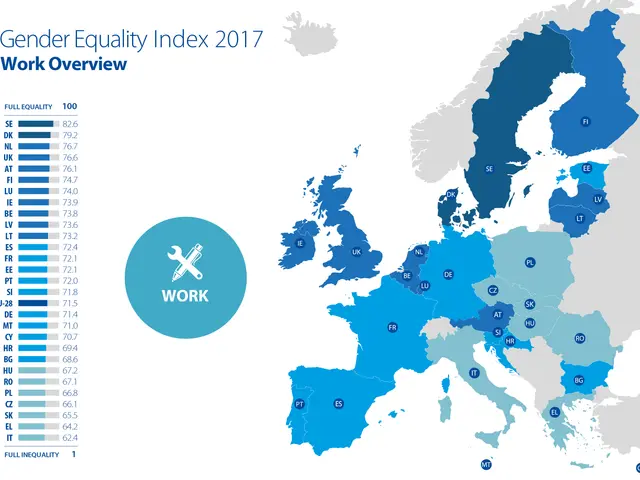Commission has been instrumental in formulating a draft measure for securing workforce from occupational hazards linked to ionizing radiation exposure.
**In a lively state press conference on Tuesday, the Minister of Infrastructure and Digitalization for Saxony-Anhalt, Dr. Lydia Hüskens, unveiled the main focuses of the upcoming revision in the state's building code. Meanwhile, Dr. Robert Momberg, CEO of the Building Industry Association East e.V. (BIVO), gratefully acknowledged some improvements, but pointed out a few areas that could use more attention in the upcoming parliamentary proceedings:
"The revision of the Saxony-Anhalt building code boasts essential improvements, which we warmly endorse. For instance, the newly proposed experimental clause for existing buildings brings much-needed simplification to renovation and repurposing efforts. Additionally, the inclusion of building type E to allow for testing cost-efficient building methods indicates that the right moves are being made.
However, it's important to address some aspects of the construction industry that have gone overlooked. In particular, regulations surrounding parking space requirements are ripe for genuine deregulation. We have repeatedly advocated for flexible solutions like individual mobility certificates or outright exemptions for residential buildings - as several other federal states have already adopted.
Regrettably, there seems to have been little progress in addressing playground requirements or a pragmatic implementation of the barrier-free provisions. These stringent regulations, frankly, drive up construction expenses and pose a challenge to the development of more affordable housing in the lower price segment.
In brief: The direction is promising, yet the boldness for comprehensive deregulation is lacking in certain areas. The revision is heading in the right direction, but could have shown more audacity."
Photo: Dr. Robert Momberg, CEO of the Building Industry Association East (c) BIVO
Construction industry associations often express concerns about elements such as:
- Parking Space Requirements: These might be of concern due to possible cost implications on construction expenses and land use, which could negatively impact the feasibility of new projects.
- Playground Requirements: Regulations involving playgrounds could raise construction costs and allocation of space, potentially influencing local building designs and budgets.
- Barrier-Free Provisions: Typically, associations would be focused on ensuring new accessibility standards are both practical and economically feasible, so as not to burden developers without compromising accessibility.
Due to the comprehensive nature of the subject matter, it would be advisable to consult BIVO's official statements or reach out to them directly for a more accurate understanding of their concerns.
- "The concern for exceeding 13% of fat content, by weight, in certain materials used in the manufacturing process of construction may also require attention in the upcoming parliamentary proceedings. This issue, if not addressed, could pose a challenge to investing in the business sector, especially with regards to real-estate development, as it could lead to higher costs."
- "In the realm of the construction industry, finance and investing are heavily influenced by the regulations surrounding building type E and its allowance for testing cost-efficient methods. The association's interest lies in exploring ways to apply similar policies to other building types, potentially accelerating the industry's modernization and expansion."
- "While the experimental clause for existing buildings is a welcome development in the revision of the Saxony-Anhalt building code, there is a call for expanding this clause to include financing and investing in the real-estate sector, such as for other industries like finance and business."








